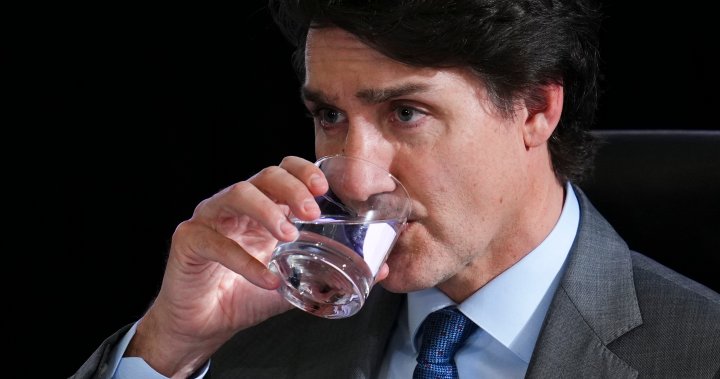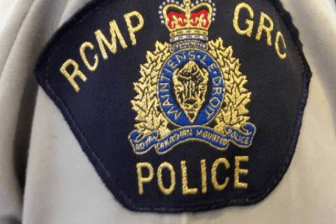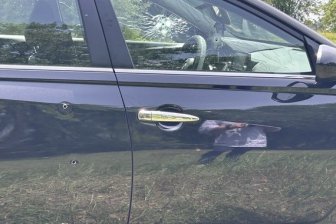Despite learning of “concerns” of allegations of potential foreign interference in the Don Valley nomination race in 2019, Prime Minister Justin Trudeau says he decided not to remove Han Dong as the Liberal candidate because it would have been a “drastic option” based on the available intelligence.
“I didn’t feel that there was sufficient or sufficiently credible information that would justify this very significant step,” Trudeau told Canada’s inquiry into foreign election interference.
“I also asked whether or not (the Canadian Security Intelligence Service) had information that Han Dong knew about this, whether he was a witting and aware that China had mobilized or Chinese officials had mobilized busses for him or not. And the answers were not clear from CSIS at that point.”
After the election, Trudeau said, he then went back to CSIS to say they needed more information on the allegations.
“We (needed) to understand what the context is because the answers that we get on that will have a bearing on choices we could make in the future about different roles or responsibilities for an individual in such a situation,” Trudeau said.
Wednesday’s testimony marks the first time Trudeau has acknowledged he was briefed about alleged Chinese planning for interference in the Toronto-area riding of Don Valley North in 2019.
Foreign interference has dominated the headlines ever since Global News first revealed in November 2022 that China allegedly tried to meddle in Canadian democratic institutions – including the nomination contest for Don Valley North.
The prime minister told the inquiry that his former campaign director and longtime staffer, Jeremy Broadhurst, alerted him on Sept. 30, 2019, in the middle of an election campaign, about the spy agency’s “concerns.”
“(Broadhurst) shared with me that intelligence services had shared with him concerns that Chinese officials in Canada had been developing plans to possibly engage in interference in the nomination contest, specifically by mobilizing buses,” testified Trudeau.
“I also asked whether or not CSIS had information that Han Dong knew about this, whether he was a witting and aware that China had mobilized or Chinese officials had mobilized buses for him or not. And the answers were not clear from CSIS at that point, according to what Mr. Broadhurst told me,” he added.

For more than a year, Trudeau has dodged questions about when and to what extent CSIS briefed him about alleged “irregularities” in Dong’s nomination contest.
After Global News published the stories in February 2023, Trudeau defended Dong, telling reporters at the time that Liberals were happy to have an MP like “Dong in our midst, serving his community.”
The prime minister also suggested that racism could be at play.
“Once again, one of the things we’ve seen unfortunately over the past years is a rise in anti-Asian racism linked to the pandemic and concerns around people’s loyalties,” he said.
The email you need for the day’s
top news stories from Canada and around the world.
Last week Trudeau was asked again when he learned about alleged interference in Dong’s riding, but would not say.
“The ongoing foreign interference commission is an important way of highlighting some of the challenges we face (among) some of the solutions that we put forward to keep our democracy safe,” Trudeau said.

The inquiry has been holding hearings off and on since Jan. 29, with hundreds of classified documents submitted and roughly 70 witnesses appearing including intelligence officials, cabinet ministers, senior bureaucrats and members of diaspora groups.
A range of immigrant communities are among the primary targets of foreign interference operations on Canadian soil, the inquiry has heard.
Sikh Coalition member Jaskaran Sandhu was blunt when asked to describe the impact on diaspora communities.
“They literally killed a guy,” Sandhu responded, referring to the assassination of Canadian Sikh separatist leader Hardeep Singh Nijjar in B.C. in June 2023.
Trudeau said in the House of Commons in September 2023 that there was “credible” intelligence that agents of the Indian government may have been involved in Nijjar’s murder – a claim reinforced by a U.S. indictment of an Indian government official last November. India has denied the allegations.
“How’s that for ‘impact?’ That’s the cost of foreign interference in this country and not taking it seriously,” Sandhu told the commission.

Both the testimonies and evidence published by the inquiry painted an unprecedented picture of the federal government’s approach to foreign interference fears in both the 2019 and 2021 general election.
The inquiry also revealed Canada’s domestic intelligence agency briefed multiple senior officials – including Chief Electoral Officer Stéphane Perrault, former public safety minister Bill Blair, and senior members of the Liberal Party of Canada, including Trudeau – about “irregularities” in the 2019 Liberal nomination contest in Don Valley North.
Global News first reported about potential irregularities in February 2023. The allegations, national security sources told Global, included the bussing of international students to support Liberal candidate Han Dong’s nomination in a GTA-riding, and that Dong was one of at least 11 candidates from Liberal and Conservative parties allegedly favoured by the Chinese government in 2019.
CSIS documents published by the inquiry revealed that the agency had information that students were bussed in, potentially given fake identification to make them eligible to vote in the Don Valley North contest, and may have been coerced into supporting Dong. The agency’s documents suggested the Chinese government may have been behind the alleged irregularities.
In his testimony to the inquiry, Dong said he presumed the bus was chartered by the school and had no knowledge of any falsified documents.
Dong has denied all the allegations and CSIS officials testifying have noted the allegations in intelligence summaries shared with the inquiry have not been proven.
“I didn’t pay attention to busing international students because … I didn’t understand it as an irregularity,” he said.

Dong’s campaign manager, Ted Lojko, testified that he didn’t know anything about the busload of students.
David Vigneault, the director of the Canadian Security Intelligence Service (CSIS), revealed they had intelligence that alleges that Beijing tried to funnel approximately $250,000 to interfere with the 2019 general election.
While CSIS offered no evidence that money changed hands, the summary it put forth suggests the money was intended to be disbursed through an alleged interference network including an influential community member, a staff member of a 2019 federal candidate, and an unnamed Ontario MPP. The intelligence suggests the money was meant to benefit 11 campaigns, including seven Liberals and four Conservative candidates.
CSIS says the money was believed to be transferred through “an influential community leader, to the staff member of a 2019 federal election candidate and then to an Ontario MPP.”
On Tuesday, the inquiry heard Canada’s spy agency recorded a phone call between Dong and China’s consul general in Toronto discussing the detention of the “Two Michaels” in early 2021, when the Canadians were still in custody.
The document, primarily created by CSIS, is described as an “incomplete” intelligence and its allegations have not been proven, despite having a recording of the phone conversation.
Global News first reported in March 2023, citing unnamed national security sources, that Dong spoke to a Chinese diplomat at the Toronto consulate about the detention of the “Two Michaels” and advised against their immediate release.
In a CSIS summary of the conversation, Dong allegedly speculated to the diplomat that if the Chinese government freed the Canadians right away it would bolster the “hardline” approach to Canada-China relations, whereas more “transparency” around their detention would placate public opinion and give the Liberal government “talking points.”
“Mr. Dong expressed the view that even if the PRC released the ‘Two Michaels’ at that moment, opposition parties would view the PRC’s action as an affirmation of the effectiveness of a hardline Canadian approach to the PRC,” read the CSIS intelligence summary.
Dong resigned from Liberal caucus last year after the reports were released, and his future with the Liberal Party remains in question.
Dong told the commission last week he didn’t recall the conversation but said he always advocated for the early release of the “two Michaels.”
A senior member of Trudeau’s inner circle, Jeremy Broadhurst, testified that he was made aware of the alleged irregularities in Don Valley North before the 2019 election and briefed the prime minister, but recommended that no action be taken on what intelligence was available at the time.
Another senior Trudeau staffer, Brian Clow, told the inquiry that while CSIS had briefed the Prime Minister’s Office on foreign interference, those discussions didn’t include some of the stark wording in the agency’s written notes that called foreign interference an “existential threat” to Canada.
David Vigneault, the director of CSIS, has been recalled to provide further testimony on Friday.
Justice Marie-Josée Hogue, who is leading the inquiry, is expected to release a preliminary report on the testimony and evidence by May 3.




